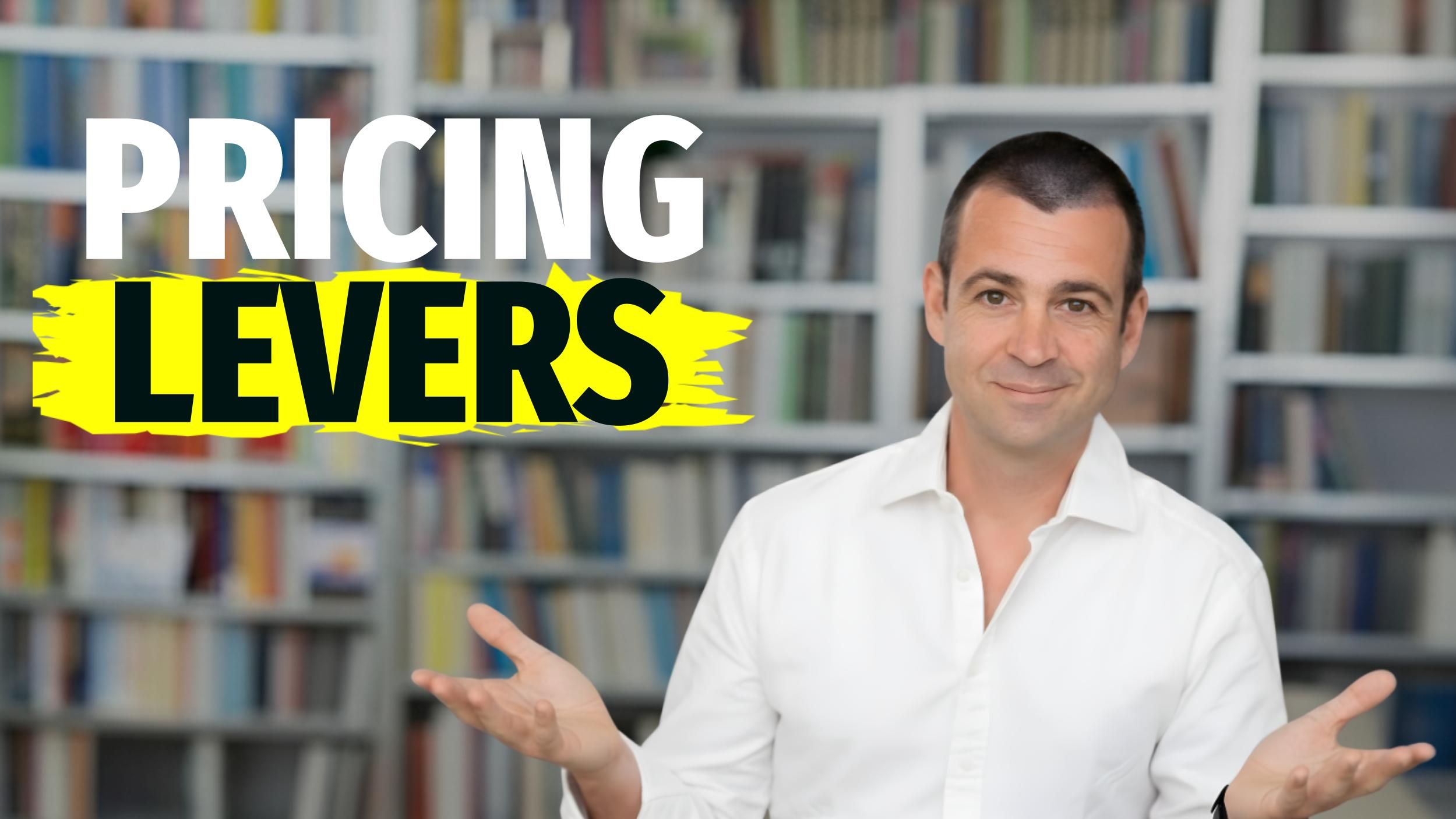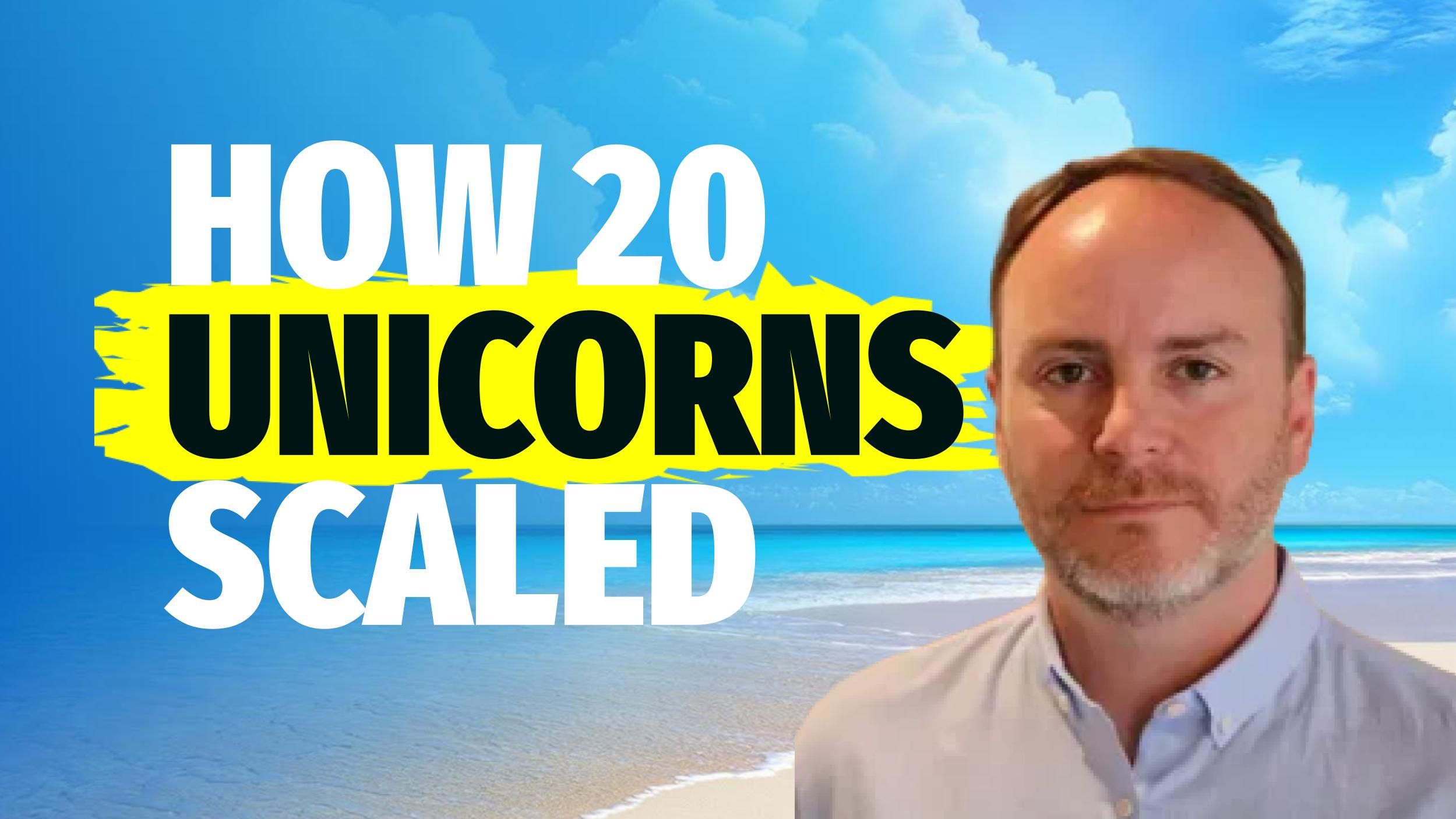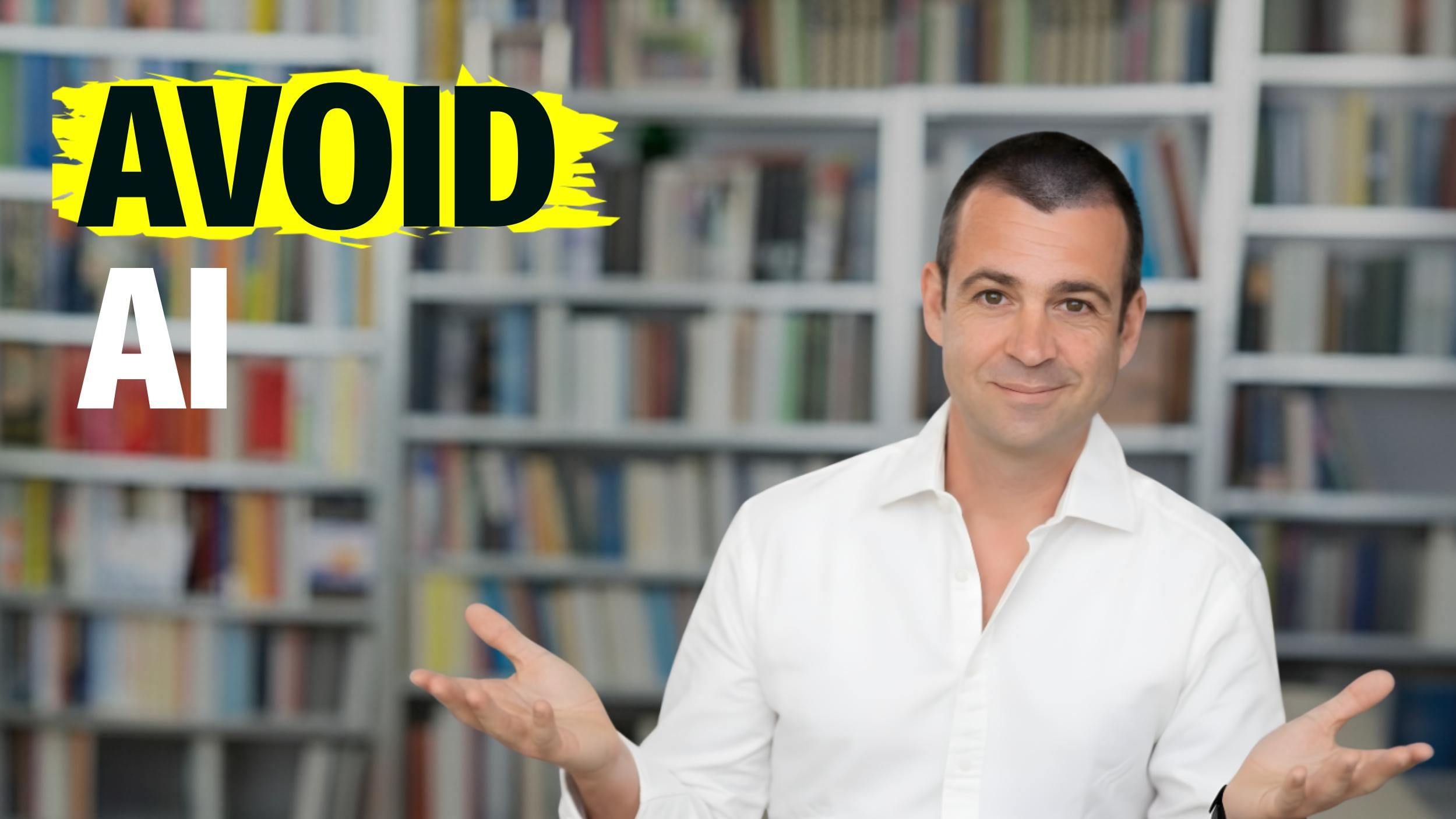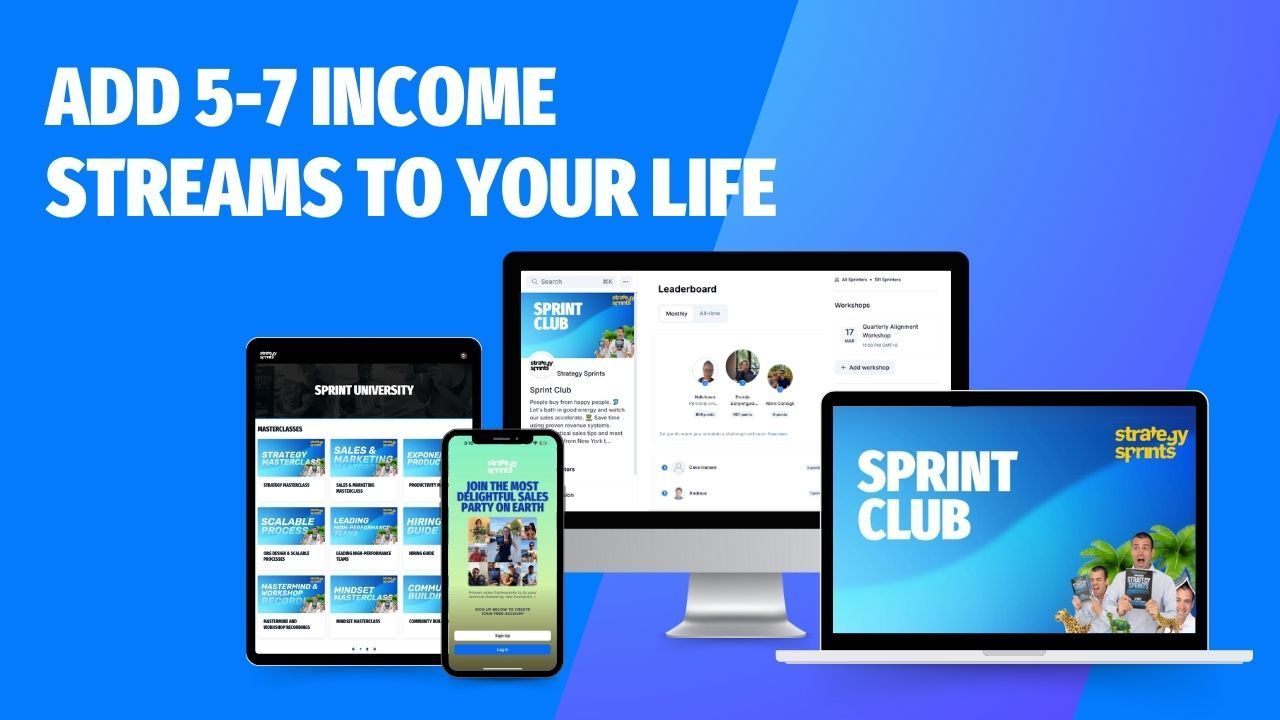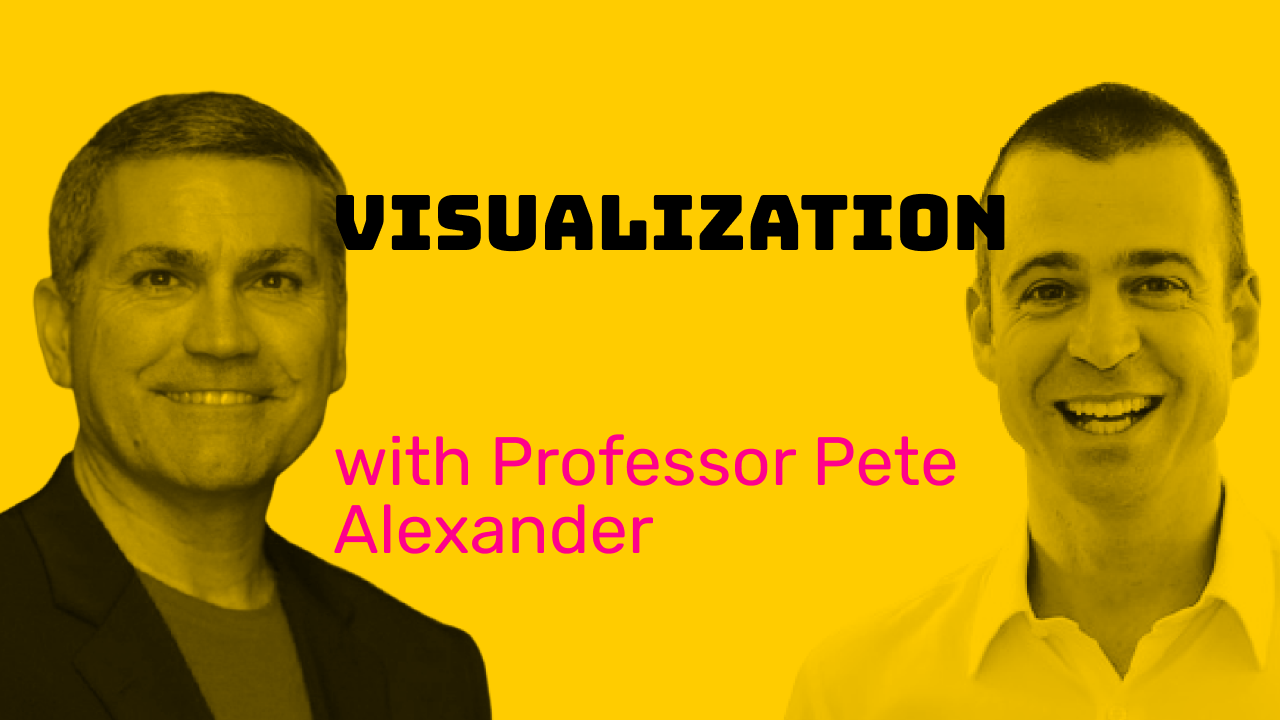
Visualization | Professor Pete Alexander | STRATEGY SPRINTS 168
In this episode, Simon and Professor Pete, an expert in sales, marketing, education, and entrepreneur fields, will talk about how to face stress appropriately and how to conquer the side effects of stress. Professor Pete’s stress management model only consists of a few simple actions but is proved to be a success. Join and listen their conversation to learn to relieve your tension and manage more challenges.
Three valuable insights:
- Don't get bogged down in all the things that are beyond your control. Only focus on what is in your control.
- Visualization helps us to calm ourselves easily. Close your eyes, take a deep breath, and go to a place in your mind that you like to rel
- If you are sending out positive energy, you will attract back positive energy, and vice versa.
(0:14) Simon: Welcome back to the strategy sprints podcast. I'm your host, Simon Severino, and my guest, today, is a recovering hard driving leader with over 35 years of sales, marketing, educational and entrepreneurial experience. Professor Pete successfully battled the negative effects of stress head-on and developed the lightened stress management model that will motivate you and your team to take action only a few minutes per day. After learning the stress management techniques he facilitates, participants can better become leaders, leading their teams and followers rather than to hide from them. Welcome, everybody, Professor Pete.
(0:58) Pete: Simon, thank you so much for having me on the show.
(1:01) Simon: So cool to have you here, and you have brought some very nice topics. We will talk visualization, gratitude, and random acts of kindness. Professor Pete, what are you currently creating?
(1:16) Pete: Well, so I currently have in beta, I have a 30-day stress buster challenge, and what that does is… it's designed to teach people new habits for helping to reduce their stress, and science has shown that we need at least 21 consistent days in a row that we're doing something to start forming those new habits. And so this 30-Day Challenge is designed to do just that by committing basically five minutes or less per day to improve your health and help you better manage challenging situations.
(1:55) Simon: Oh, beautiful. Where can people do the challenge? I mean.
(2:01) Pete: Oh, they can reach out to me on my website, and I can give them a promotion code as well for it if they want to participate. So just at petealexander.com, and they'll see it.
(2:15) Simon: How would you describe the stress we are in right now in this pandemic? What kind of stress is this?
(2:21) Pete: Oh, this is… I don't want to say it's unprecedented, because that would basically tell us that our history, you know, nothing is like this in our history, it really, you know, there have been plagues etc that we've had to deal with. But this one, the interesting thing with this one is that it affects all aspects, all industries, both good and bad. And what I recommend to all of my followers and clients and friends and contacts… everybody there with this pandemic, we have to understand that, yes, there's a lot of stress with this. But we… our human nature is that whenever we're faced with a stressful situation like this pandemic, we're going to worry about all aspects of that. Yet, when you really think about it, how much of this pandemic is under your control? Not a huge amount. So if you can, in your mind, think about this and think, okay, there's the things we can control and there's the things we can't control. And so if you can break them up into two lists, and so let's say, things like the government response to the pandemic is not within your control. Even a person near you wearing a mask is not under your control. So, everything there, put it in one list, what is under your control, you’re wearing a mask, you’re washing your hands, consistently, and you’re protecting yourself with the social distancing, whatever it is that you can control. Those are the things that you can affect change in. And if you then concentrate as much of your mindset on what you can control and what you can affect change, then you'll see that your stress will go way down, because anytime we feel like we're in control that we can actually do something to make a difference, then we feel more relaxed. And so that is what is so critical about something like this pandemic. Don't get bogged down in all the things that are beyond your control, only focus on what is in your control and it won’t feel so overwhelming.
(4:52) Simon: You know, I was born in Rome, so whenever I have stress, I feel drawn towards the Roman philosophers. One of them was a slave. He was in today's Turkey, and he was a slave, he then moved to Rome. And his name was Epictetus, and Epictetus said one thing that really resonates with me, he said, three things are in your control: What you stand for your value; Second, Your judgments, which come from your values; And then the third one, your actions. Absolutely.
(5:38) Pete: You're absolutely right. So where our mindset is under our control and our mindset is what's going to affect our actions. And you mentioned about values as well, which is so critical. That's one of the core things that I always work with people on is to help them figure out what is the most important things to them, truly. And so there's a blog post that I have on my website that helps you elicit your personal values in any area of your life. And it's… if any of your listeners who haven't done that, it is so so important to do so because often the stress that we create for ourselves, most of our stress is self-induced, we do it to ourselves, somebody else isn't doing it to us, we're doing it to ourselves because if you, let's say, you have a customer or someone else that is just bothering you, the reason they're bothering us because you're letting them bother you. So that's the critical thing. And often, it's because we're going against what our values are, because that's what our true self. And if we're not being our true self, then it is going to occur. So anytime there's a major decision that you have to make, whether it's your career, your family, whatever, if you don't know what your top three to five values are in that area of your life, how are you going to know that's the right decision for you?
(7:08) Simon: Absolutely. And what will also strike me about Epictetus is that he was a slave, but he never saw himself as a victim, because with this framework, which is exactly what your program is, based on it, with this framework, he always concentrated on what is in his control. And so he will, okay, what can I do now? What can I do? And then you don't fall into the trap of identifying yourself with something that's going on. Like, if you identify yourself, and why is this happening to me right now? Or well, then you're doing something that is not even there or is not even necessary? And beautiful.
(7:54) Pete: Yeah. Yeah. It's actually, if your… why is this happening to me? Why is this always happening to me? That's actually closer to the victim role. It's like, you're not being… you're not taking action. It's like, okay, so why is this happening? let me figure out what I can do to to fix this problem. That's the proactive(ness).
(8:15) Simon: How do you grasp the fine line between ownership and being 100% embracing the situation and owning it versus victimhood?
(8:27) Pete: Well, anytime that you feel like you want to blame someone else that you basically want to say, “Okay, this is happening to me because the government put a new tax on us or something like that.” Well, that is a victim role when you're just giving your power away. So what the way I always define it is, do you feel like you're giving your power away by saying, “Oh, this person did this to me or this organization did this to me,” okay, you know, we all have lost customers, we all have lost revenue, from different different situations, but it's what do you do to learn from that, to move on and get stronger. And that's a proactive approach. You know, so you're fully embracing it when you realize, okay, let's learn from this and let's move on. But if you keep on going back to, “You caused this for me or a family member did this or that,” negativity and you want to blame somebody else, that's when you're in the victim role, and that's not a healthy mindset because it sucks you down into negativity, and doesn't help you grow
(9:47) Simon: This is so important and now let's move to the strategy award.
So, you can pick one person, when everybody's zigging, this person is saying, from your perspective, is doing the right thing.
(10:10) Pete: That would be Damon Pistolka. He's one of my contacts that I've had for almost a year. He and his partner, Andrew, are amazing with all the content that they're creating for business owners that, you know, multiple times per week, they are going live and talking about different strategies etc that business owners can learn. And he's making a difference. So that's who I would give the award to.
(10:42) Simon: Beautiful. So let's unpack your three topics. And tell us about your CEO tips.
(10:50) Pete: Sure, sure. So I’ll go in order of the ones that you mentioned earlier. So the visualization one is a great one. Because, you know, when we feel like our blood is starting to boil, our best practice is to just caml ourselves and it doesn't take very long so I can walk you through this, so that you can see how it works for yourself. So what you want to do is you close your eyes, and take a deep breath.
And what I'd like you to do is go to a place in your mind that you like to relax, maybe it's the beach, maybe it's the park, maybe it's a lake, maybe it's your backyard, maybe it's the spa, whatever it is, go there in your mind, and start taking in all of your senses. What do you feel? Do you feel the sun on your face? Do you feel the sand or the grass under your feet? What do you smell? Do you smell the fresh air? Maybe the spa lotion? What do you hear? Do you hear the wind blowing through the trees? Maybe the water splashing on the shore? And what do you see? Do you see the blue sky? Maybe the green of the trees or the grass? Whatever that is, take it all in, and then take another deep breath. And open your eyes. How do you feel?
(12:43) Simon: Beautiful. I'm smiling. I was at the beach.
(12:47) Pete: There you go. And so it's and we just did that right here live in one minute. And basically anytime that you start feeling that stress’s going up, and you feel like, “Oh gosh, what can I do?” Like there's many different things you can do, but this is a great one because you don't even have to move, you can just sit back in the chair for one minute and be able to do that.
(13:08) Simon: That's perfect. And I saw a study from Japan that says six deep breaths can change your state?
(13:21) Pete: Yes. And I don't know if you noticed you probably weren't paying attention to. So I have you start with a deep breath. And I have you end with a deep breath. But chances are you were breathing nice and slow as I was taking you through that visualization. And that's all because you're going to a place that you like to relax. And if you feel like you're relaxing, your breathing is going to be slower and deeper.
(13:46) Simon: Beautiful.
(13:48) Pete: So it's a combination of visualization and deep breathing exercise.
(13:51) Simon: Nice. So everybody, whenever you feel stressed before you lose it, lose your control, you can get in control again.
(14:03) Pete: Absolutely. Absolutely. Because, you know, what if you lose your control, what happens? We've all done it. Something… we say something that as soon as it comes out of our mouth, we regret it. And you know, once it's out, you can apologize but it's out.
(14:20) Simon: I have practiced observing when it comes up, so that I can see soon and before it overwhelms me, and so I've tried to pay attention to the bodily signals. And it is, to me, it's anger when I get angry at something or somebody, usually somebody, but I see an arousal of a very warm and beautiful feeling. I feel strong, and I feel like, soon, I'm going to spit fire like a dragon and it feels very well and very positive. So now I have the… and only the ramifications afterwards, I will feel bad for somebody and have guilt feelings. But in that moment, it feels actually like a high energy and very positive thing, and very powerful. So now when I see this combination of powerful and warm in my chest, I say attention, attention, and I started breathing.
(15:31) Pete: Oh, interesting, that's a good way to do it. You know, it's interesting, too. And another activity that I've done in the past, is… if I really, you know, I need to get that major energy out of my system. If I can go outside and go for a quick walk that helps, or what if I can't, let's say at home, you go grab a pillow and just scream into it at the top of your lungs. And if you do that you scream into at the top of your lungs, you get that energy out of you. And so there's so many different things you can do. And it doesn't take very long to do them. Because you don't want to keep that inside of you. Because that's where the thing is, if that energy wants to get out. And so if you keep it inside of you, that's where the problems can occur over the long term.
(16:21) Simon: I have observed dogs. When dogs have stress, the first thing they do is… they put it out of their system and a couple of seconds later they are centered again.
(16:35) Pete: Yes, yes. And you know, our pets are allied. They're not mentally stressed like we are, you know, constantly, so if you have a pet and you want to look at what you should be acting, look at, you know, pay attention to your like you're mentioning with the dog.
(16:59) Simon: Because we don't have a dog, my gurus are my kids, so I observed my kids and I learned from them. They are sad in a second or they hit themselves and they're hurt, so two seconds of crying, the third second they are here now again and say, “Okay, where's the Lego?”
(17:16) Pete: Exactly. It's where's the Lego is like… it’s gonna be… it's somewhere where dad's gonna step on it with his barefoot, because that's what happened with my kids.
(17:29) Simon: That happens a lot also. Now, one word from our sponsors.
(17:42) Simon: That was visualization. How do we proceed from there?
(17:48) Pete: Well, so the next one is gratitude. And this one, you know, when we have a mindset of gratitude, It's a positive mindset. And often what happens is that we get so wrapped up in what's going on in our lives, and we're trying to make our businesses grow, and we're trying to get the bigger houses and we're trying to get the fancier cars and biggest bank accounts, whatever it happens to be, we lose sight of the little things that really are important. And so if you get a mindset of gratitude, where you are thankful for things that happen to you during the day, you end up sending out that positive energy to the universe, and the universe then will send positive energy back to you. It's basically the law of attraction. If you are sending out positive energy, you will attract back positive energy. And if you are sending out negative energy, you will attract back negative energy because it's basically the law of attraction.
And so for example, my wife and I, we have a gratitude exercise that we do every night right before bed. And I asked her what are you grateful for today? And she asks me, what am I grateful for today? And I always start with I'm grateful for my health. And it's because all else is secondary. And the fact is, if you think about it, without our health, what you know, , let's say, if you think about the last time that you were really sick, did you feel like doing anything other than lying in bed? Probably not. And if you have no energy, and you're just lying in bed, you're no good to your business, you're no good to your kids, you're no good to your spouse, you're no good to anybody. And so health is so so important. So I am always grateful for my health because I I experienced losing it. And I know what that is like. So things like, “Oh, I'm grateful that I had the opportunity to tonight will be…” this show will be one of my gratitude, I'm grateful that I had the opportunity to talk to Simon, you know, that's, it's the small things. And if you get into the habit of being grateful for those things, so let's say, if you need to get to an appointment and you're driving, and if you're worried about getting there and you're going to be late, you know, what's going to happen, you're going to hit the red lights, guaranteed. But if you have this gratitude for I hit the green light, thank you, you know, I appreciate that. It's sending out that positive energy, you don't stress yourself out. And what ends up happening is, you start appreciating things around you. And that is what is so important. So it's just these simple techniques that make all the difference in the world.
(20:54) Simon: Absolutely. And everybody can do it, it costs nothing. Before we go to your third tip, I'm excited about three books that shaped you.
(21:12) Pete: Yeah, you know, it's interesting, that question, because there're a lot, but breaking them down into three was a little difficult. So the three that I have… The Slight Edge by Jeff Olson, the reason I like this one is because he talks about how to make a complete difference in your business, just do a little bit more than your competition, just a little bit more. And so that is, you know, it's it's a very simple thing. And so he talks about the different things that you can do in order to make a difference. And so we're not talking about dramatically changing your organization. And that's what I like, because so often you talk to consultants, and they come in, they say you have to do this major, major, major changes. This is no, do what you're doing, but just do it just a little bit better. And you'll and if you do that consistently over time, you will have a huge difference.
A second one is Hal Urban's Life's Greatest Lessons. And this is specifically for like, for example, Simon, you've got kids that I do too. What this is just a very good book on helping to let your kids know, there's basically things if, you know, like, hard work is required to get what you want. It's the simple things that so often that kids take for granted. And so I you know, I use that with my kids. And it's a really good book, just enjoyed reading, it has some great examples in it.
And the last one follows with our gratitude exercise. So Rhonda Byrne’s The Magic, this is the gratitude book. And what it does is, she in basically 28 days, so a month, roughly, you do a gratitude exercise each day. And it has their different topics. And what happens is you get into that mindset of being grateful for stuff. And you will have a positive outcome if you do that. And that's similar to like I was talking about with the stress buster challeng is you get into a habit. And so her book talks about getting into, you know, attitude of gratitude, which we've all heard before, but that was life changing for me as well.
(23:40) Simon: Super powerful. Thank you for sharing.
(23:43) Pete: You bet.
(23:44) Simon: Your third CEO tip is random acts of kindness. Why?
(23:51) Pete: Well, okay, so CEOs, I mean, are busy, very, very busy. But they're also at the top of the… I don't want to say food chain, but they're at the top of the organization. And so everybody working underneath them wants to have some level of approval. You know, it's in all of us, we want to know that we're having a doing a good job or that we're appreciated. It's just human nature. And if the CEO, as the first thing that he or she does, at the beginning of the day, sends an email, a quick email, this takes literally a minute or two, quick email or a text and just says, “Hey, thank you. I appreciate what you did for something,” that makes a huge, huge difference to the person who is receiving it. And here's the great thing about it, when you send something of appreciation, in most cases, the person is going to reply back with a real positive. And as long as you don't expect that, because if we set the expectation that, okay, if I send this message, I expect somebody to say thank you back. Don't do that. Because if you set an expectation for it, then you're inevitably going to get disappointed by somebody. When you do get a response back from somebody, consider it the cherry on top of the ice cream sundae, basically, you're going to get another jolt of positivity, you're going to get one job by sending a message, a positive message to feel good for you. And it allows you to start your day on the positive. And then when you get the response back, if you get the response back, it's going to be another jolt of positive energy. And it's it doesn't take much effort. And you know what, you win, I still have a couple different large organizations that I worked at, where I got something from the CEO. And that's special. It really is. And so that's the random acts of kindness are a very inexpensive way to make a huge difference.
(26:11) Simon: So applicable, beautiful. And Professor Pete, where can people get in touch with you?
(26:16) Pete: Sure, they can just go visit me at petealexander.com and I’m happy to talk to people. I've got a weekly blog for these different tips. There's over 100 of them already posted. And I'm happy to help anybody, if they've got any other stressful situations that they want to talk about.
(26:40) Simon: Who should be my next guest?
(26:42) Pete: You know, who I would do for, for instance, these are business leaders and executives, I would talk to Ira Bowman, because Ira Bowman is a master at social media marketing, and if anyone is looking to get additional exposure for their organization, he'd be a great person to listen to his some of his strategies, because he's killing it on social media.
(27:13) Simon: Thank you so much for Professor Pete. I am so thankful for this episode. And thank you for sharing your journey and your wisdom with us. And come back soon.
(27:23) Pete: Yes, thank you so much for having me.
Get our expert sales tips delivered
By submitting you agree to receive our weekly Strategy Sprints Newsletter as well as other promotional emails from Strategy Sprints. You may withdraw your consent at any time via the “Unsubscribe” link in any email or view our privacy policy at ant time.


